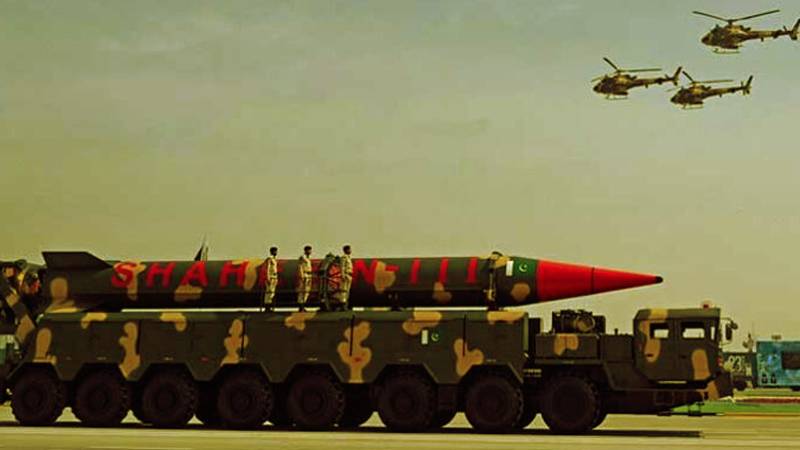
The Supreme Court Bar Association of Pakistan (SCBAP) on Thursday termed the US sanctions on the National Development Complex (NDC) and other commercial entities as unfair and a move to disturb the peace in the region.
"We characterize such unfair imposition of sanctions as a shocking move to disturb the peace and stability of the region, and a deliberate attempt to marginalize and destabilize the independent state of Pakistan," stated a press release issued by SCBAP's President, Mian Muhammad Rauf Atta.
SCBAP also called upon the government of Pakistan and all concerned state institutions to leave no stone unturned in ensuring the progress, safety, security, and stability of Pakistan and the region.
"We bestow our fullest and outright confidence in our state institutions in such extremely sensitive matters," said the President of SCBAP.
The statement added that SCBAP has always stood for the unqualified, unconditional, and absolute sovereignty, security, and protection of Pakistan.
"In doing so, we want to put on record our serious objections and apprehensions over the recent imposition of US sanctions on the National Development Complex (NDC) and three commercial entities."
"We strongly denounce these sanctions, which are based on hearsay and lack substantial evidence."
SCBAP asserted that such US sanctions are a direct meddling in our crucial security-related matters and an interference in the internal affairs of Pakistan. "Global forces, such as the US, need to understand that every country has a right to take necessary measures to maintain and ensure its internal and territorial security."
"We want to make it abundantly clear that such a move will increase the risks to non-proliferation, thus endangering the peace and stability of the region."
"We believe that such sanctions will undermine our commitment to building an economically robust Pakistan."
It further stated that since independence in 1947, Pakistan has recognized the US as a trustworthy strategic partner. "We have always tried to develop fair terms with the US by promoting people-to-people interactions to shape our bilateral relations based on common mutual interests; however, it goes without saying that all our fairness has often been met with political posturing."

